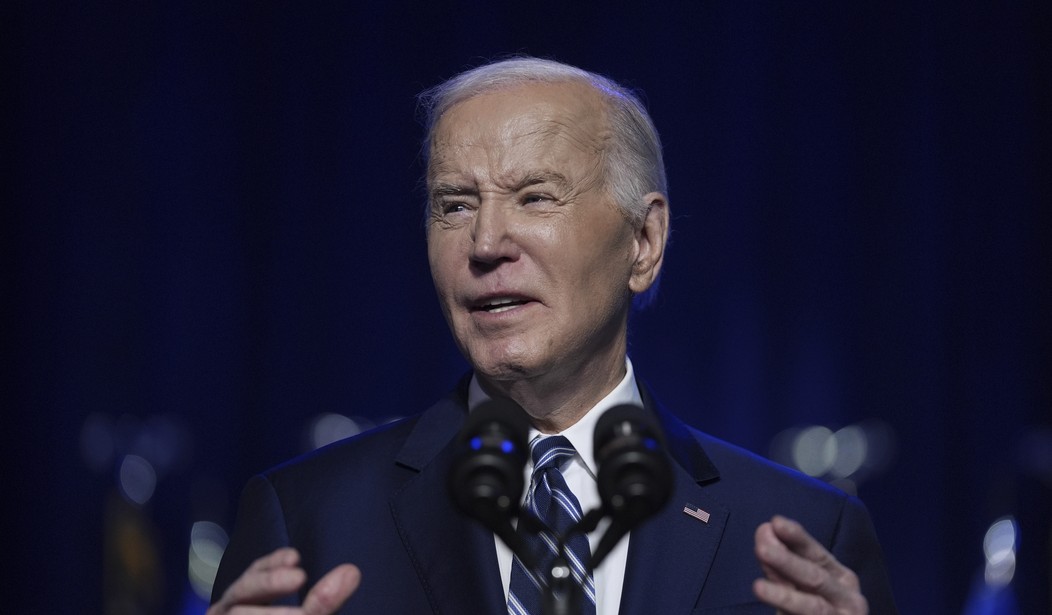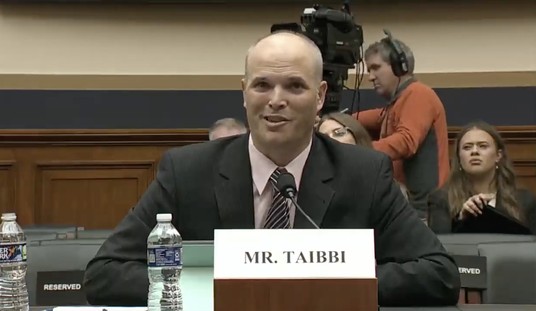On May 14, U.S. Trade Representative Katherine Tai announced new tariffs levied against 14 new categories of Chinese imports. This marks another economically confused political victory for Washington’s flailing protectionists.
Inconveniently for the administration’s new push for tariffs, nobody has rebutted the dubious economics of protectionism better than Joe Biden. Slamming the trade warfare of Donald Trump in 2019, Biden ridiculed the notion “tariffs are being paid by China.” As the then-candidate continued, “Any freshman econ student could tell you that the American people are paying his tariffs.” A few months later, Biden once again condemned Trump’s “irresponsible tariff war with China,” pledging to “reverse his senseless policies.” In office, however, Biden has proved as unfree a trader as his predecessor, subordinating his erstwhile clarity to aspirations for industrial policy and central planning.
Tariffs, like any taxes, raises prices. Justification for this new batch stems primarily from Biden’s disbelief in economic tradeoffs. The president aims to have his cake and ensure it’s made in America, too. It seeks a breakneck transition to electric vehicles (EVs) and solar power. But simultaneously, it will levy prohibitively high tariffs to bar foreign manufacturers from providing low-cost and consumer-friendly products that would speed that transition.
Typifying this intellectual dissonance, Treasury Secretary Janet Yellen rushed to deny that the new tariffs will trigger “any meaningful increase in…prices.” As Scott Lincicome from the Cato Institute noted on X (formerly Twitter), absent “meaningful” price pressures, the tariffs will also fail to offer “meaningful” protection. Finding it easier simply to deny reality outright, Tai told reporters that the “link, in terms of tariffs to prices, has been largely debunked” — an erroneous claim her own just-released report debunks. Pseudo-economic gibberish notwithstanding, the world of suspended economics in which levying tariffs extracts low-priced, well-made, and abundant American goods from lagging industries — all without tradeoffs — exists only in the protectionist imagination.
Recommended
The Trump-initiated, and Biden-perpetuated, trade wars have largely failed to secure their objectives. Moreover, on net, they have damaged the American economy. Although purported by their advocates to target foreigners, tariffs primarily burden domestic consumers, who must pay tariff-inflated prices. Whatever its meager benefits to the targeted industries, protectionism does great harm to downstream industries and consumers. The Tax Foundation reports that “the Trump-Biden tariffs will reduce long-run GDP by 0.21 percent, wages by 0.14 percent, and employment by 166,000 full-time equivalent jobs.”
In 2018, Trump introduced tariffs unilaterally under Section 301 of the Trade Act of 1974, the provision under which Biden now somewhat dubiously acts. “There is near-universal agreement that Section 301 tariffs failed to achieve their goals while costing U.S. taxpayers the equivalent of $1,700 per household and sparking Chinese retaliation against U.S. farmers and other exporters,” Bryan Riley, director of the free trade initiative at the National Taxpayers Union Foundation, tells Reason.
Biden’s just-announced tariffs aim specifically to promote the industries he has made central to his industrial policy, including semiconductors and clean-energy technologies. “Relative to Mr Trump’s China tariffs, the new levies are both more targeted and more dramatic,” the Economist notes. “Mr Trump’s tariffs in time sprawled to cover over $350bn-worth of imports from China, mostly at a 25% rate. Mr. Biden’s tariffs cover about $18bn-worth of imports, though at far more prohibitive rates.” Among other goods, the Biden administration will raise rates on EVs (from 25 percent to 100 percent), lithium-ion batteries and their components (from 7.5 percent to 25 percent), steel and aluminum (from 0–7.5 percent to 25 percent), semiconductors (from 25 percent to 50 percent), and solar cells (from 25 percent to 50 percent).
The higher prices that will result from Biden’s new rates (e.g., the rates on batteries, for which America relies heavy on Chinese imports) will slow consumer adoption. However, drastic rate hikes on such products as Chinese EVs, which command one percent of the U.S. market, and Chinese steel, which comprised less than one percent of U.S. steel imports in early 2024, will likely trigger less substantial immediate changes.
Even still, these measures accomplish a pernicious and far-reaching objective by excluding entire categories of Chinese goods from competing stateside. This, for industrial policy advocates, is precisely the point. Experience does not justify their sanguinity. For example, in the 1980s, Washington instituted robust protectionist measures against Japanese autos. Besides failing largely to protect U.S. manufacturers effect, these measures cost Americans billions. As a rule, babying American industries — insulating them from market forces — promotes lethargy and long-term fragility, not innovation and robust competitive strength.
Protectionism enjoys a seemingly bottomless emotional resonance in American politics. Facially inspiring speeches about saving American industry and workers from nefarious foreign actors garner politicians votes, media attention, and — not to be discounted — donations from interested firms seeking further trade barriers. Tariffs’ scant benefits accrue to small groups, fostering crony coalitions of self-interested supporters. Conversely, their far-greater harms, which fall diffusedly across the economy, produce comparatively little backlash.
Biden and Trump have made clear their intention to unwind the hard-won system of free trade that undergirds modern American prosperity. No matter who “wins” the race to increase tariffs, American voters, consumers, and businesses will lose.
David B. McGarry is a policy analyst at the Taxpayers Protection Alliance.

























Join the conversation as a VIP Member